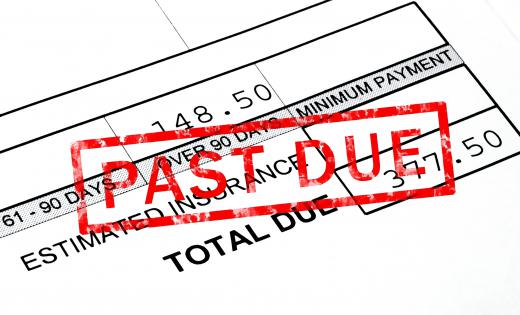Customer due diligence is a term used to describe the processes and procedures used by a business to qualify a potential customer before the establishment of a working relationship, and is also used to continue qualifying that relationship once it is established. The idea behind customer or client due diligence is to evaluate the circumstances of the client and make sure that doing business with that customer is within the level of risk that the company is willing to take on in exchange for the benefits of establishing and maintaining that relationship. At its best, this type of due diligence prevents companies from securing clients who ultimately are unable to honor their obligations and create some degree of financial distress for the business.
There is some difference of opinion as to when the process of customer due diligence actually begins. One school of thought holds that the first stages occur when developing a list of prospects for a sales team to contact. As part of the process, efforts are made to determine if there is a reasonable chance that the prospect would be interested in doing business with the company. If so, further investigations focus on the general business operations of the prospect, and the general reputation of that company within the industry. Should the prospect appear to be stable and financially sound, the sales team moves forward with making contact and attempting to gather more information that helps to move the contact closer to the establishment of a client/vendor relationship.

As the time for closing the sale approaches, customer due diligence will dictate looking closer into the financial situation of the prospective customer. This will often mean obtaining credit reports and other financial data that help the vendor to assess the degree of risk associated with doing business with that potential customer. The due diligence at this will probably be especially thorough if the new account would involve the establishment of some type of revolving credit account, with the results of the research helping to determine the credit limit on that account.

Assuming that the customer due diligence proves that the prospect is creditworthy and a relationship is established, this does not mean that the supplier considers the due diligence to be complete. Many companies will review credit accounts on an annual basis, pulling credit reports and other information to determine if it is still in the best interests of the company to do business with a given customer. Attention is also paid to trends within the economy or the appropriate business sector to determine if the fortunes of a client may reverse in the near future, allowing the company to limit credit and minimize the chances for incurring a loss. Ongoing customer due diligence helps to limit the amount of receivables that roll over into a past-due status as well as minimize the number of clients who are eventually sent to collections, a move that not only helps protect the revenue stream but also reduces legal and other expenses that would be incurred in attempting to collect what may ultimately be an uncollectable debt.
